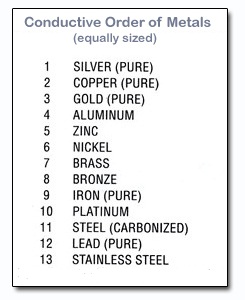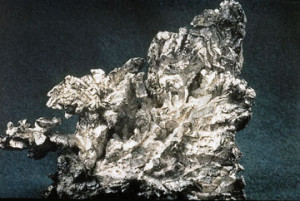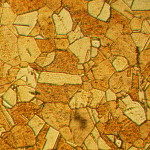Simply Audio cables are the products we proudly build by hand. Years of fascination for and experience with audio cables have led to the development of audio cables with which we have obtained very good results in various audio systems. That is why we decided to bring our own Simply Audio cables on the market, which of course is already full of other cable brands. That’s also why our cables are tailor-made, hand build and consequently of the highest possible quality you could wish for.
Why we use silver as conductor?
The purpose of an audio cable is to transport the music signal from component A to component B by means of the conduction of electrons. A major task for the cable is that it should not affect the music signal in any way. The best way to realize this is by using silver as the conducting material. Although the conduction of silver is only 7% more than that of copper, its influence on the music signal is much lesser (in a positive way) than less conductive materials. This results in more neutral sounding cables with preservations of audiophile parameters like dynamics, soundstage, details, phase & rhythm, etc.
Connectors – how we terminate our cables and why.
Simply Audio is very critical about the use of connectors. Connections that are not correct mean that all effort to keep the music signal pure is meaningless. It is precisely in the transition from media (cable to connector and vice versa) that good conductivity is extremely important.
Metals we often see on audio connectors like gold, silver, rhodium or copper are to soft to make a connector completely out of it. They will bent or brake when used. That is why 99% percent of all audio connectors despite their brand, form or plating are made from brass. Brass is an alloy and consists of a mixture of metals, mostly copper and zinc (CuZn). The proportions of copper and zinc can be varied to create a range of brasses with varying properties. Copper is more expensive then Zinc, so various mixtures are available.
In a brass conductor the electrons aka the music signal jumps from copper to zinc and vice versa throughout the conductor. This constant change from material is a rough path for them and this will create a large resistance for the music signal. (place number 7 in the table show on this page). Another problem is that both metals will oxidize conducting even less than they did in their original form. So this brass connector needs to be plated for both reasons.
 When plating the brass connectors some suppliers choose to plate them with a small layer of gold, while other choose silver or rhodium. The average thickness of the plating is between 7 – 10 micron. This will prevent oxidation and will reduce the resistance of the connector. Of course it looks good to and enhances our impression and sense of quality and finish.
When plating the brass connectors some suppliers choose to plate them with a small layer of gold, while other choose silver or rhodium. The average thickness of the plating is between 7 – 10 micron. This will prevent oxidation and will reduce the resistance of the connector. Of course it looks good to and enhances our impression and sense of quality and finish.
Simply Audio has of course chosen for silver plated connectors because it simply has the best conductive properties, but there is another reason. We use the highly silver plated connectors from Audio Note because these are plated with 60 – 70 micron of high grade pure silver instead of 7-10 micron. This means a layer of 6 till 10 times ticker than others. This makes the path for the music signal far more easier to travel, resulting in less resistance, less alternation and less coloration. Of course these connectors do not come cheap and do make a considerable part of the cost of our cables.
Hence our choice of silver as the best material for both our cable and connectors, as it IS world’s best electrical conductor.
Disadvantages of Silver.
Are there no disadvantages of silver? Yes, there are two. First, the silver used on connectors oxidizes to silver oxide in time which makes them look black. The bright side is that silver oxide conducts even better than silver, so this disadvantages actually turns into an advantage. If you wish you can clean the connectors once in a while. Because of the thickness of the silver layer this is save to do with a cleaner like Servisol. Secondly, silver is more expensive than copper, which makes the cables costlier than copper ones.
Convince yourself, listen to Simply Audio cables and hear the difference. The amount of money you will save, we like you to spend on what it is actually all about: MUSIC!

